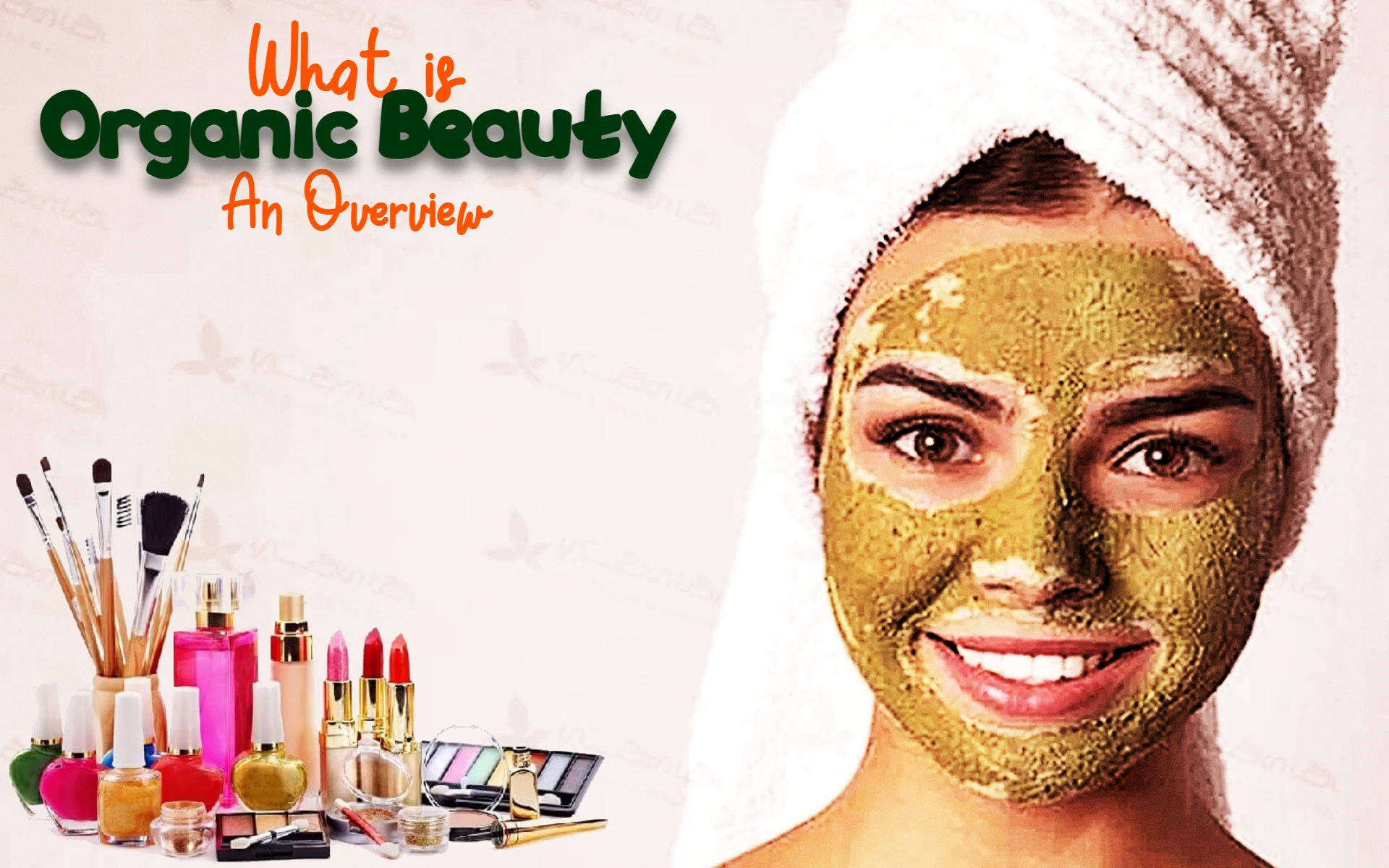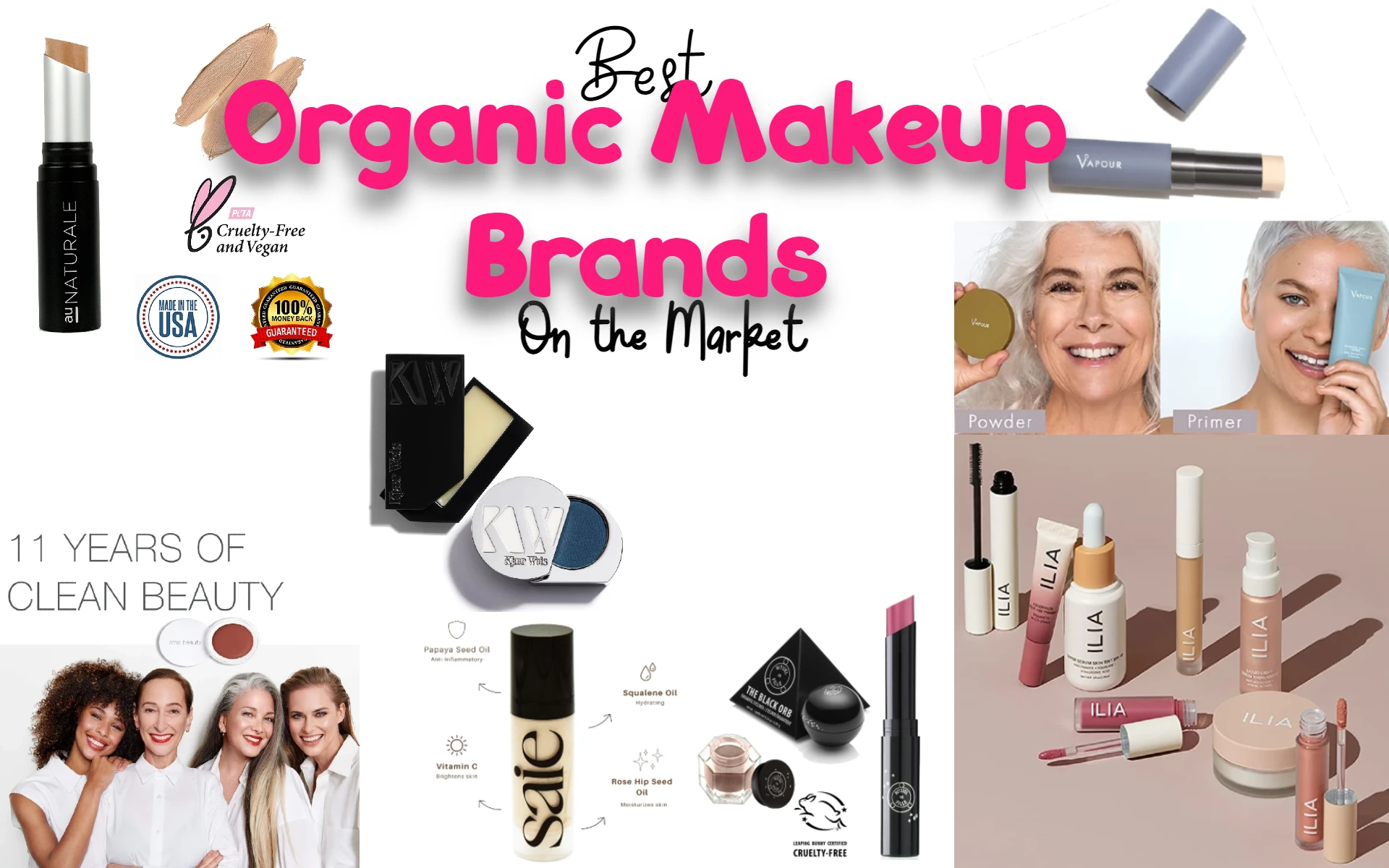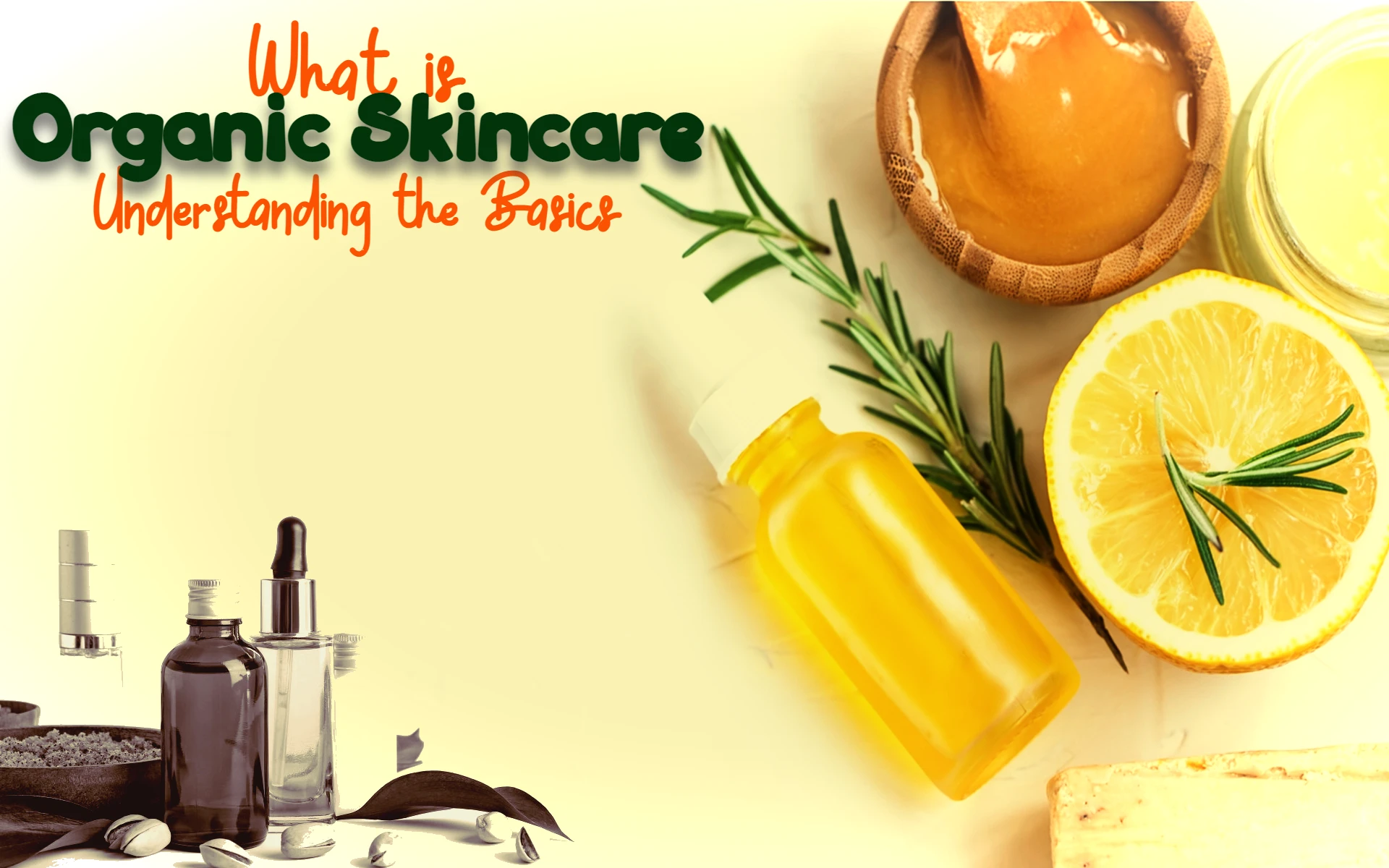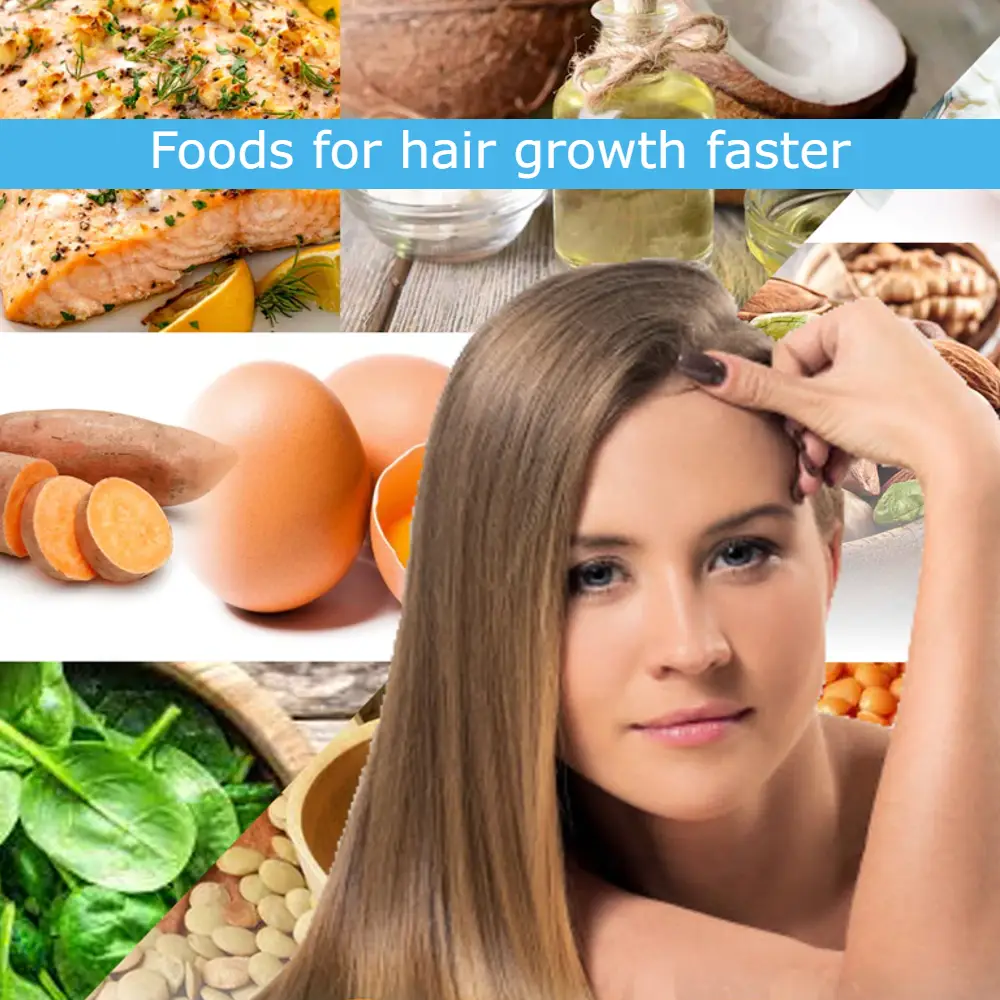What should we eat Organic For Glowing Skin?
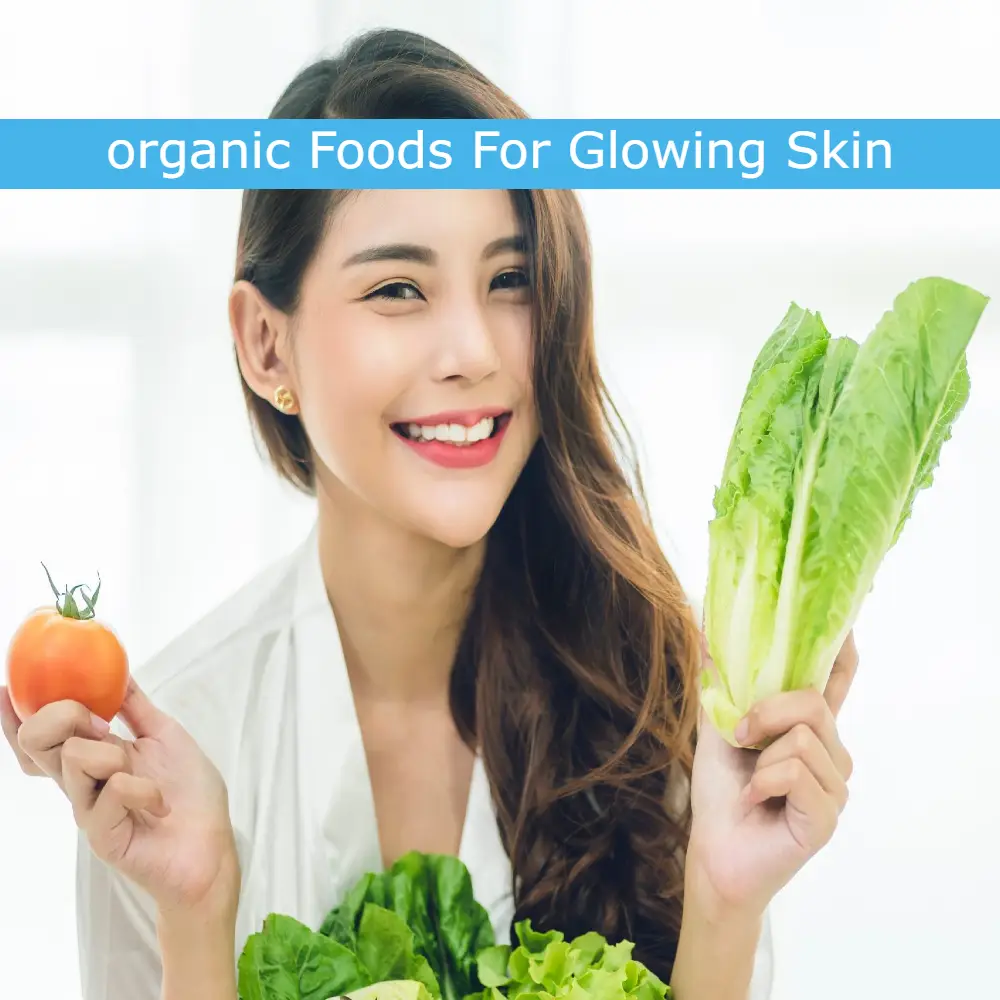
Lifestyle habits (like smoking) and genetics can definitely influence and predispose your face to pesky conditions, but it doesn’t mean the quest to get a glowing complexion is a lost cause.
There are plenty of cosmetics that claim to be “skin food”, but the truth is that the real key to keeping your skin looking radiantly beautiful comes from inside. While it’s true that these products offer a topical solution, gorgeous, hydrated skin starts with eating right. And that all depends upon whether or not the best foods for glowing faces are on your plate.
25 Best organic Foods For Glowing Skin
1.Sunflower seeds
Sunflower seeds are packed with nutrients. They help to meet 37 percent RDI for vitamin E, 10 percent for zinc, 32 percent for selenium and 5.4 grams of protein. They are, therefore, an excellent source of skin-boosting nutrients.
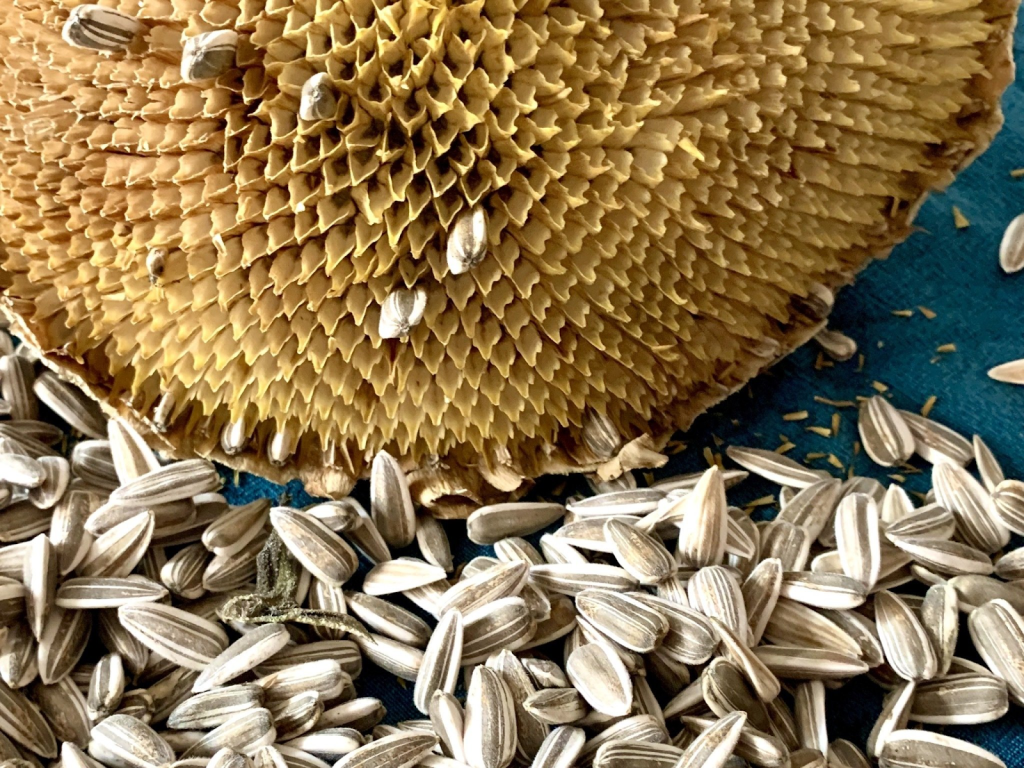
2. Probiotics
Not having enough probiotics in your diet, eating the wrong types of foods—unfortunately, that slows down digestion and creates a shift in the type of bacterial environment in your gut says Dr. Whitney Bowe. “I always simplify it and say an inflamed gut means inflamed skin. If you heal your gut, that’s the first step in healing your skin.” To incorporate more probiotics into your diet, Bowe suggests reaching for kombucha, sauerkraut, anything pickled, yogurt with live active cultures, kefir, and miso.
3. Prebiotics
Another way to support a healthy gut (and as a result, clear, healthy skin) is with the inclusion of prebiotics in your regular diet: “It’s almost like fertilizer for your good bugs or your good bacteria,” Bowe says. “Garlic, leeks, dandelion greens, asparagus—those are great sources of prebiotic fiber in the diet. They help to feed the healthy flora and restore your gut microbiome to a much more healthy state.”
4. Low-Glycemic Index Foods
Bowe says high-glycemic foods (like refined carbs, white pasta, white bread, pretzels, bagels, cookies—any kind of refined, processed foods) have been linked with inflammation and acne in particular “There are randomized controlled trials that show if you swap out some of those high glycemic index foods for low glycemic index foods, including any kinds of protein sources, chicken, pasteurized eggs, vegetables, quinoa, steel-cut oatmeal, sweet potato, brown rice—you actually can clear up acne,”
4. Dark chocolate
Last but not least on our list of organic foods for glowing skin is dark chocolate. Cocoa not only has a great effect on the mood, but also on the skin. In one study, participants found that after a 6-week intake of cocoa powder, they had more hydrated, thicker skin with less roughness and less sensitivity to sunburns. These effects of dark chocolate could be due to improved blood flow to the skin, which brings more nutrients and antioxidants to the skin.
In another study, it was found that eating about 20 grams of dark chocolate a day, the ability of the skin to withstand the UV radiation improved to almost twice as much. Apart from these benefits, dark chocolate helps in improving the appearance of wrinkles and fight the signs of aging.
In order to reap the maximum benefits from dark chocolate, make sure to consume one with at least 70 percent cocoa.
5. Non-Dairy Milk
Non-dairy milk options might not actively work to clear up your skin, but switching from dairy milk to an alternative option could make all the difference in your acne breakouts. Although Bowe says there are studies linking skim milk and dairy milk with acne (likely due to the whey and casein found in dairy, she adds that you don’t have to give up dairy completely in the name of clear skin.
“The studies show that there’s an association between milk and ice cream and acne, but there’s not an association with yogurt and cheese with acne,” she explains. “We think that’s because of the prebiotic benefit that’s found in the cheese and yogurt, so that sort of negates the negative effects of the dairy.” In other words, stick with the yogurt, but pass on the skim milk.

6. Berries
Blueberries, blackberries, and cranberries—not to mention the all-powerful goji berry—are high in antioxidants and packed with nutrients. Antioxidants are anti-inflammatories that aid the body to heal itself while also protecting against further free-radical damage—doing wonders for your skin “Berries are rich in antioxidants, including vitamin A and vitamin C,” Dr. Maiman says. “Ellagic acid, however, appears to be the antioxidant prevalent in this food group that is also responsible for some of its skin-related benefits,” Dr. Maiman says.

7. Leafy Greens
“Leafy greens like spinach, kale, collard greens, broccoli, and Brussels sprouts pack a powerhouse of antioxidants and vitamins that provide a multitude of skin benefits,” Dr. Maiman says. They provide the body with vitamin A, which works against dry, flaky skin; vitamin C, which undoes the sun’s damage to collagen and elastin; and vitamin E, which helps fight against inflammation. Furthermore, leafy greens contain folate, a nutrient necessary for DNA repair.

8. Broccoli
Broccoli is full of many vitamins and minerals important for skin health, including zinc, vitamin A, and vitamin C. It also contains lutein, a carotenoid that works like beta carotene. Lutein helps protect your skin from oxidative damage, which can cause your skin to become dry and wrinkled.
But broccoli florets also pack a special compound called sulforaphane, which boasts some impressive potential benefits. It may even have anti-cancer effects, including on some types of skin cancer.
Sulforaphane is likewise a powerful protective agent against sun damage. It works in two ways: neutralizing harmful free radicals and switching on other protective systems in your body. In laboratory tests, sulforaphane reduced the number of skin cells UV light killed by as much as 29%, with protection lasting up to 48 hours. Evidence suggests sulforaphane may also help maintain collagen levels in your skin.
9. Turmeric
Turmeric does wonders for soothing inflammation and has also been shown to improve your immune system and support proper brain function Consume it with warm water to balance your skin’s natural flora and protect your skin cells against free radicals.
10. Eggs
There’s a reason egg cream is a Korean beauty trend. Egg yolk is meant to nourish and soothe the skin while also providing vitamin A for skin repair.
11. Brazil Nuts
Selenium, found in Brazil nuts, is another powerful antioxidant that helps protect the skin from free radicals. Not only that, but studies have shown selenium can help to clear skin, reducing the risk of breakouts and decreasing acne.
12. Citrus Fruits
“Citrus fruits are a naturally rich source of vitamin C, a potent antioxidant that speeds cellular turnover, fights free radical damage and inflammation, and assists in the production of collagen and elastin,” Dr. Maiman says. It also encourages your body to metabolize faster and can help you feel less bloated
13. Green Tea
Consumption of green tea is part of some East Asian cultures, and Japanese women in particular have been aware of its skincare benefits for centuries. Some of its many benefits include helping to slow DNA damage, stopping inflammation, and even protecting against sun damage and burns. There’s a reason the superfood makes its way into so many cosmetics; Ingesting the real deal directly delivers its immediate soothing qualities while working toward lasting results.
14. Fatty fish
Fatty fish such as mackerel, herring, and salmon are a great source of omega-3 fatty acids, which are important for skin health. They keep the skin supple and moisturized and keep the signs of aging at bay. Moreover, these fatty acids reduce inflammation, which plays an important role in causing redness and acne. In fact, a diet rich in omega-3 fatty acids can also make the skin less sensitive to harmful UV radiation in the sunlight. Other antioxidants in fish include vitamin E, which is a well-known antioxidant for skin. Additionally, the antioxidants in fish are strong enough to fight autoimmune skin conditions like lupus and psoriasis.
15. Good Oils
High-quality oils like cold-pressed extra-virgin olive oil and avocado oil are brimming with nutrients that may benefit your skin—including essential fatty acids and vitamin E. “The healthy monounsaturated fat [in olive oil] is so good for skin health, moisture, and elasticity,” Smith says.
16. Chia Seeds
Chia seeds are rich in plant-based Omega 3s, protein, and soluble fiber. “Omega 3s in chia seeds provide an anti-inflammatory effect and can protect the skin from inflammatory conditions, like eczema, hyperpigmentation, etc.,” Minchen says. “Additionally, protein is at the foundation of healthy skin structure. And finally, soluble fiber can help keep the gut healthy, which may boost healthy probiotic balance in the gut and ultimately the skin. Chia seeds are also very hydrating, helping keep the skin plump.”
17. Red or yellow bell peppers
Like sweet potatoes, bell peppers are an excellent source of beta carotene, which your body converts into vitamin A. One cup (149 grams) of chopped red bell pepper contains the equivalent of 156% of the DV for vitamin A.
They’re also one of the best sources of vitamin C. This vitamin is necessary for creating the protein collagen, which keeps skin firm and strong. A single cup (149 grams) of bell pepper provides an impressive 211% of the DV for vitamin C. A large observational study involving women linked eating plenty of vitamin C to a reduced risk of wrinkled and dry skin with age.
Bell peppers contain plenty of beta carotene and vitamin C — both of which are important antioxidants for your skin. Vitamin C is also necessary to create collagen, the structural protein that keeps your skin strong.
18. Sweet Potato
Shapiro and Minchen both recommend consuming sweet potatoes. The vegetable is rich in beta-carotene, vitamin A, vitamin E, and antioxidants. “Beta carotene (a vitamin A precursor) and vitamin A itself fight discoloration and early signs of aging in the skin by supporting healthy skin renewal,” Minchen says. “Vitamin E supports collagen in the skin, and antioxidants fight inflammation-related skin damage.”
19. Cucumber
Cucumbers are rich in water, vitamin C, and folic acid. “Cucumber promotes skin health both from the inside and the outside,” Shapiro says. “Eat it to keep your skin hydrated and for the antioxidants to prevent skin damage long term. Put it on your face to decrease inflammation, reduce swelling, and promote healing from sun damage. Cucumber is soothing, hydrating, and contains silica which will hydrate and strengthen your skin.”
20. Edamame
Edamame is the most wholesome form of soy. “It contains isoflavone, which has been shown to prevent wrinkles and promote skin health,” Shapiro explains. “It can also promote collagen production, keeping the skin more elastic and therefore results in fewer wrinkles.”
21. Soy
Soy contains isoflavones, a category of plant compounds that can either mimic or block estrogen in your body.
Isoflavones may benefit several parts of your body, including your skin.
One small study involving middle-aged women found that eating soy isoflavones every day for 8–12 weeks reduced fine wrinkles and improved skin elasticity.
In postmenopausal women, soy may also improve skin dryness and increase collagen, which helps keep your skin smooth and strong.
These isoflavones not only help to protect the cells inside your body from damage but also your skin from UV radiation — which may reduce the risk of some skin cancers.
22. Tomatoes
“Tomatoes contain lutein and lycopene—two powerful antioxidants and phytonutrients that may be skin protective,” Smith says. “Also, tomatoes have a good amount of water volume so they are hydrating as well, which is always helpful.”
23. Walnuts
Walnuts are another great source of essential fatty acids i.e. fatty acids that the body cannot make itself. In fact, they have a higher content of omega-3 and omega-6 compared to other nuts. These fatty acids can fight autoimmune inflammatory disorders like psoriasis.
Moreover, other nutrients like selenium, vitamin E, vitamin C, and zinc are also plentiful in walnuts; just an ounce of walnuts can meet up to 6 percent of the RDI for zinc. Zinc improves the skin barrier and wound healing properties.
A diet that is too high in omega-6 fatty acids, without omega-3 to counteract it may promote inflammation. Walnuts, however, contain a perfect balance of omega-3 and omega-6 fatty acids, and this perfect ratio can fight the inflammatory response to excessive omega-6.
24. Red grapes
- Red grapes are famous for containing resveratrol, a compound that comes from the skin of red grapes.
- Resveratrol is credited with a wide range of health benefits, among them is reducing the effects of aging.
- Test-tube studies suggest it may also help slow the production of harmful free radicals, which damage skin cells and cause signs of aging.
- This beneficial compound is also found in red wine. Unfortunately, there’s not much evidence that the amount of resveratrol you get from a glass of red wine is enough to affect your skin.
- And since red wine is an alcoholic beverage, there are negative effects to drinking it in excess.
- It’s not recommended to start drinking red wine just because of its potential health benefits. Instead, you should increase your intake of red grapes and berries.
25. Avocados
Avocados contain high levels of healthy oils and vitamin E. “Both of which provide the building blocks for healthy skin cell function as well as help improve barrier function and hydration,” Dr. Maiman says.
Contents
- 25 Best organic Foods For Glowing Skin
- 1.Sunflower seeds
- 2. Probiotics
- 3. Prebiotics
- 4. Low-Glycemic Index Foods
- 4. Dark chocolate
- 5. Non-Dairy Milk
- 6. Berries
- 7. Leafy Greens
- 8. Broccoli
- 9. Turmeric
- 10. Eggs
- 11. Brazil Nuts
- 12. Citrus Fruits
- 13. Green Tea
- 14. Fatty fish
- 15. Good Oils
- 16. Chia Seeds
- 17. Red or yellow bell peppers
- 18. Sweet Potato
- 19. Cucumber
- 20. Edamame
- 21. Soy
- 22. Tomatoes
- 23. Walnuts
- 24. Red grapes
- 25. Avocados
